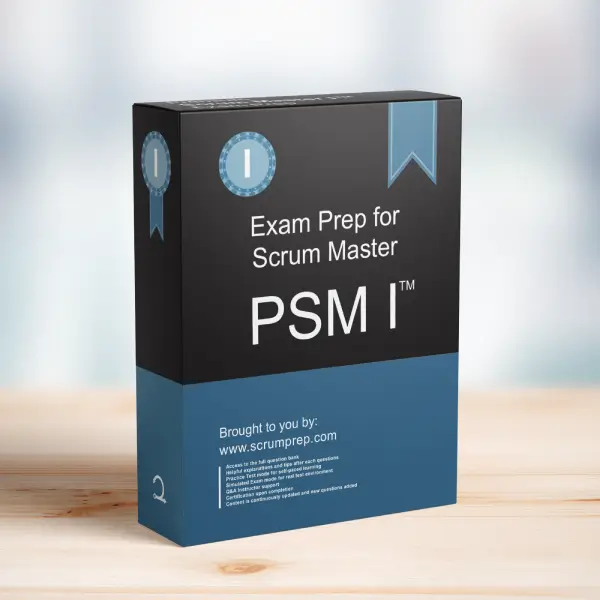Understanding the Product Backlog in Scrum
The Product Backlog is a fundamental artifact in Scrum, representing the work needed to improve a product. It is dynamic and evolves as the team learns more about the product and its customers. This article explores a specific exam question about the nature of the Product Backlog, providing detailed explanations and insights relevant to the PSM I exam.
Exam Question
Which best describes the Product Backlog? (choose the best answer)
- A. It is baselined to follow change management processes.
- B. It contains all foreseeable tasks and requirements from which the Scrum Team can develop and maintain a complete project plan.
- C. It is allowed to grow and change as more is learned about the product and its customers.
- D. It provides just enough information to enable a Scrum Team to start the design phase of a product.
Correct Answer
C. It is allowed to grow and change as more is learned about the product and its customers.
Explanation
Correct Answer
C. It is allowed to grow and change as more is learned about the product and its customers: The Product Backlog is a living artifact that evolves as the team gains more insight into the product and its market. This dynamic nature allows the Scrum Team to adapt and prioritize work based on the most current information, ensuring that they are always working on the most valuable tasks.
Incorrect Answers
A. It is baselined to follow change management processes: This answer is incorrect because baselining the Product Backlog contradicts the flexible and adaptive nature of Scrum. The Product Backlog should be open to changes as the team learns more about the product.
B. It contains all foreseeable tasks and requirements from which the Scrum Team can develop and maintain a complete project plan: This option suggests a fixed plan, which is not in line with Scrum principles. Scrum emphasizes adaptability and iterative planning rather than maintaining a complete, fixed project plan.
D. It provides just enough information to enable a Scrum Team to start the design phase of a product: While the Product Backlog does provide enough information to begin work, its purpose is broader. It encompasses all the work needed to improve the product and is continuously refined and reprioritized.
Responsibilities in Scrum
- Product Owner: The Product Owner is responsible for managing the Product Backlog. They ensure that it is ordered, transparent, and up-to-date. The Product Owner collaborates with stakeholders and the Scrum Team to refine and prioritize the backlog items.
- Scrum Master: The Scrum Master helps ensure that the Product Backlog remains flexible and adaptive. They facilitate the Scrum events and support the Product Owner in maintaining the backlog.
- Developers: Developers work with the Product Owner to refine the Product Backlog items. They provide insights into the technical aspects and help estimate the effort required for each item.
Relevance to the PSM I Exam
Understanding the nature of the Product Backlog is crucial for the PSM I exam. It demonstrates knowledge of Scrum principles and the importance of maintaining a dynamic and adaptable backlog. Mastering this concept ensures that Scrum Teams can effectively manage and prioritize their work.
Key Takeaways
- The Product Backlog is a dynamic and evolving artifact that grows and changes as more is learned about the product and its customers.
- It is managed by the Product Owner and is continuously refined and reprioritized based on the latest information.
- The flexible nature of the Product Backlog allows the Scrum Team to adapt and focus on the most valuable work.
Conclusion
The Product Backlog in Scrum is designed to be flexible and adaptive, evolving as the team learns more about the product and its customers. This dynamic nature ensures that the Scrum Team is always working on the most valuable tasks. Understanding this concept is essential for effective Scrum implementation and success in the PSM I exam. For comprehensive preparation and practice exams, check out PSM I Exam Prep to enhance your understanding and application of Scrum principles.




